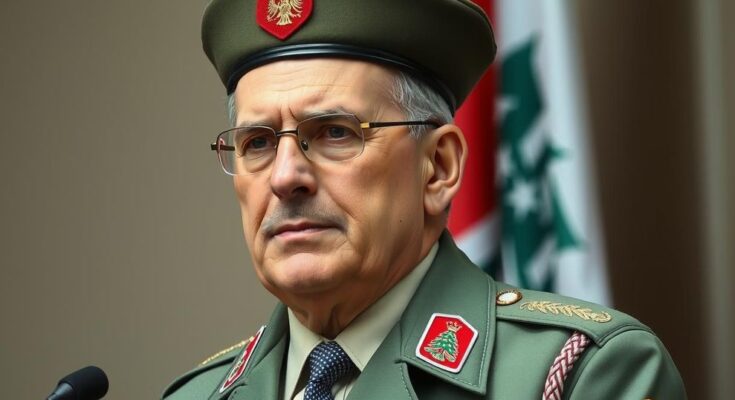Lebanon’s army chief, Joseph Aoun, has been elected president by the parliament, ending a two-year power vacuum. Supported by various political parties and key international allies, Aoun’s election occurs following a ceasefire after conflict with Israel. He is expected to navigate the country through ongoing crises, including political instability and economic depression.
Lebanon’s parliament has recently elected Joseph Aoun, the army chief, as president, thereby concluding a prolonged power vacuum that has persisted for over two years. His candidacy received broad support from multiple political parties, along with endorsements from the United States, France, and Saudi Arabia. The rival candidate, who had the backing of the Hezbollah militia, withdrew in support of Aoun just prior to the election. While the presidency is primarily a ceremonial position reserved for a Christian under Lebanon’s sectarian power-sharing arrangement, Aoun’s election comes after a ceasefire agreement that aims to stabilize the region following a destructive conflict with Israel and a notably challenging political climate.
Joseph Aoun, age 60, has served as the commander of Lebanon’s army since 2017. Throughout his tenure, he has managed the military through several significant crises, including the extensive military engagement with Hezbollah, a six-year economic downturn, and the catastrophic Beirut port explosion in 2020 that resulted in over 200 fatalities. Since the last parliamentary elections were held in May 2022, Lebanon has struggled with a lack of functioning government, exacerbating its political instability. Caretaker Prime Minister Najib Mikati was unable to form a new cabinet before the previous president, Michel Aoun, concluded his term in October 2022.
The election of Joseph Aoun marks a pivotal moment in Lebanese politics, providing hope for a resolution to the ongoing governmental stalemate and the challenges that have long plagued the nation. Aoun’s support from both domestic and international entities underscores a potential shift in political dynamics aimed at restoring stability. His previous experiences leading the army through crises suggest he will approach the presidency with a focus on national unity and security, which are crucial for Lebanon’s recovery and future governance.
Original Source: www.bbc.com




